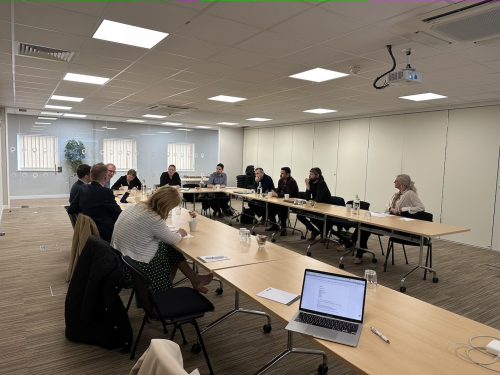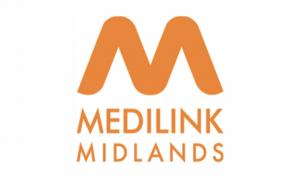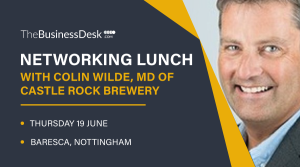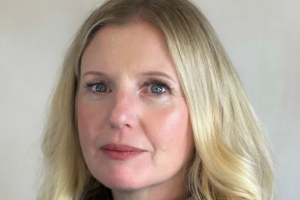Round table report: Exploring international trade relationships post-Brexit

Life science industry leaders came together recently in Kegworth, Leicestershire, to discuss the opportunities of nurturing overseas collaborations and inward investment.
The panel explored the steps businesses need to take to ensure they can trade overseas and asked whether enough is being done to help them with their international ambitions at an event sponsored by Medilink Midlands.
An overview of the international trade landscape showed that everyone thought creating relationships has never been more crucial.
It was agreed that the landscape has seen significant shifts, particularly with the fall-out of Brexit, creating both opportunities and obstacles for businesses worldwide.
One notable trend emerging post-Brexit is a growing appetite and ambition for trade in Europe from a variety of UK businesses.
However, this newfound enthusiasm is met with a labyrinth of regulations and trade barriers, posing challenges for businesses navigating the international market.
Melanie Davidson, CEO of Medilink, said: “As a company, we aim to explore how other businesses in the healthcare sector navigate trade barriers and their perspectives on the future of international trade. Additionally, we seek to assess our region’s readiness for such developments.”
Louise Stock, who specialises in healthcare, life science, and bio-economy sectors at the Department for Trade, focuses on helping companies understand international trade.
She said: “Our goal is to assist businesses in understanding international trade better. We offer various services and gather feedback to identify areas where businesses need more support.”
Consensus was reached on the importance of promoting trade opportunities and actively educating businesses while providing incentives to attract foreign investment, which focused the discussion on international trade in the East Midlands.
Mark Copley, CEO of Copley Scientific, noted a decline in the level of output in Europe post-Brexit, prompting a need for trade agreements with countries beyond the continent.
He said: “We need a more fluid trade environment similar to Switzerland’s model, which simplifies the import processes to facilitate smoother transactions.”
Paul Cable, founder of a start-up company Neupulse, added: “There are now higher costs associated with international trade, particularly in the medical sector where government processes in the UK are perceived as slow. Despite the absence of significant political barriers, the UK’s withdrawal from the European Union has prompted countries to adopt protective measures, complicating trade negotiations.”
Glen Tyrrell, senior product manager Tachmed said: “While there aren’t significant political barriers, our self-exclusion has made other countries more protective of their interests. Exploring alternative markets, such as the US, where we’re being welcomed, is essential. It’s about identifying the vulnerabilities in global trade barriers. UK businesses are increasingly establishing international hubs, operating both domestically and abroad, like in the US.”
Looking beyond European borders, Phil Poole’s business Healthy Food Stuff is refocusing its efforts on the US market, drawn by opportunities and fewer regulatory hurdles.
Poole said: “I think it is important for UK businesses to establish international hubs, bridging operations between the UK and lucrative markets such as the US. This not only helps us understand how other companies operate, but it helps us tackle a lot of the problems associated with international trade.”
Gosia Malgorzata, commercial and marketing director of Charnwood Campus Science Innovation and Technology Park reflected on the unfulfilled promises of Brexit and the lack of trade freedom.
She said: “Understanding what businesses can do and the available options in international trade is crucial and I think the lack of knowledge about international trade is a problem; as discussed, utilising agreements and exploring opportunities in other countries are vital for boosting economic growth.”
Following on from the statement of a ‘lack of understanding and knowledge’ David Campbell of Surescreen Diagnostics warned of a “slow tyre puncture” effect, where foreign companies hesitate to invest in the UK due to perceived barriers and lack of incentives.
He said: “As a country, we need to improve our competitiveness on a global stage and this will come from strengthening the manufacturing sector in the region and direct funding towards research and development.”
Despite challenges, everyone agreed that the Midlands as a region is actively positioning itself as an attractive destination for international businesses.
With skilled professionals and connectivity, they aim to capitalise on opportunities presented by initiatives like the East Midlands Freeport and investments in infrastructure.
Chris Tebbs, inward investment executive at Marketing Derby, said: “Attracting inward investment is crucial, with Derby boasting a substantial pool of engineers and efforts to educate companies about the region’s potential. There’s a shift from a historically closed mindset to a proactive one, with emphasis placed on the region’s central location and connectivity. However, challenges remain, such as the perception that the Midlands isn’t the hub for medical technology.
“There’s a need for better communication and promotion of the research and development happening in the region, with potential government support in areas like financial assistance and talent development institutes.
Copley added: “Investments in transportation infrastructure, such as the airports in East Midlands and Birmingham, will be crucial in improving our attractiveness for connectivity as a region.”
Davidson added: “The Midlands has so much going for it. We just need to come together to form a cohesive strategy that will prove irresistible for overseas investors. We should relish this challenge and I look forward to seeing where it will take us.”









